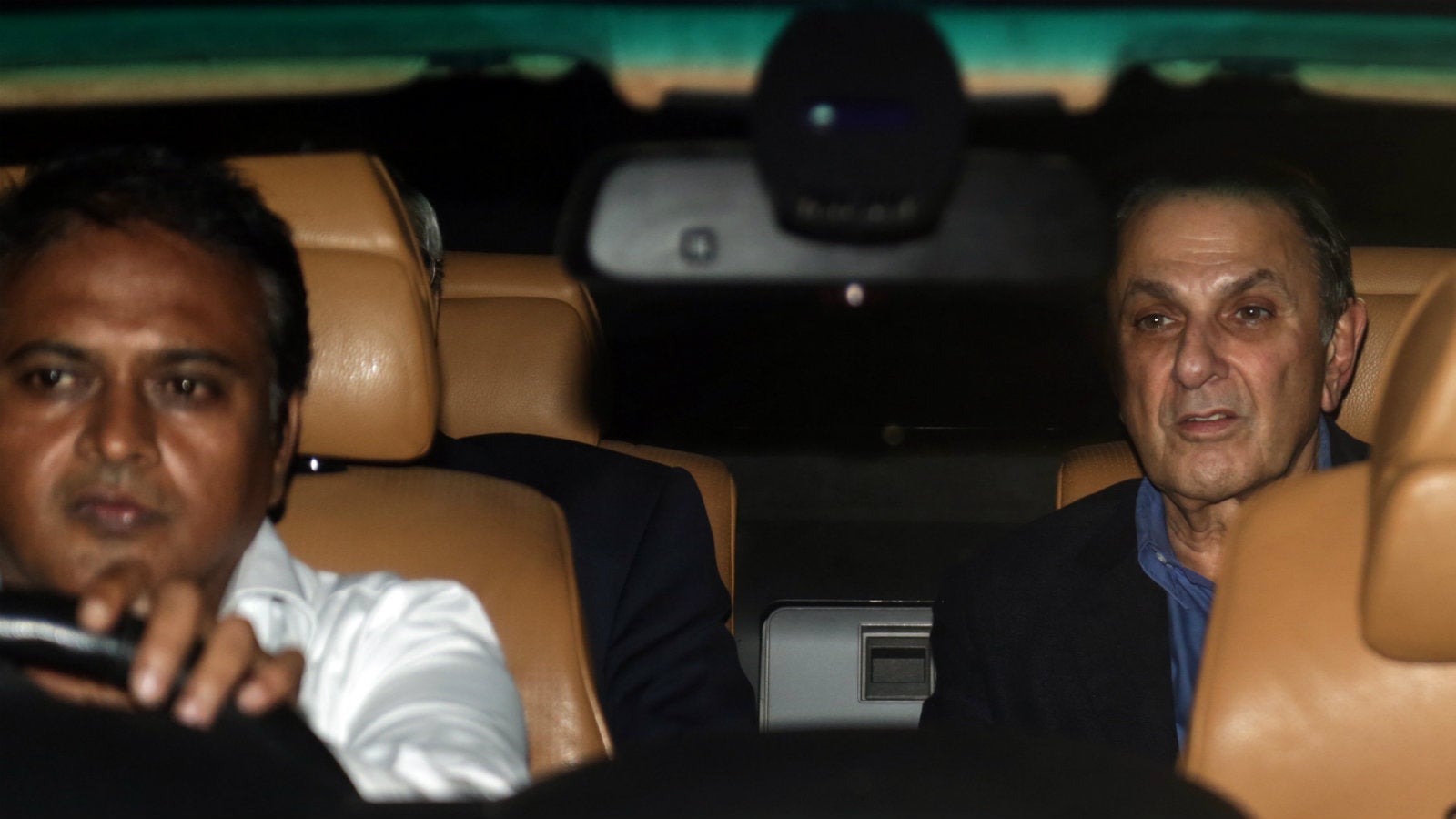An old friend and corporate veteran has accused Ratan Tata of violating insider trading rules
As if allegations from ousted chairman Cyrus Mistry weren’t hurting Tata Sons enough, now an old confidante has targeted Ratan Tata over wrongdoings in the group’s affairs. Nusli Wadia, the 72-year-old chairman of the Wadia Group and an independent director at Tata Steel, has written a letter to the shareholders of the steelmaker, accusing Tata of possibly violating insider trading regulations.


As if allegations from ousted chairman Cyrus Mistry weren’t hurting Tata Sons enough, now an old confidante has targeted Ratan Tata over wrongdoings in the group’s affairs. Nusli Wadia, the 72-year-old chairman of the Wadia Group and an independent director at Tata Steel, has written a letter to the shareholders of the steelmaker, accusing Tata of possibly violating insider trading regulations.
Wadia has alleged that Tata, along with N A Soonawala, a trustee with Tata Trusts, sought sensitive information about group companies, violating rules laid down by the Securities and Exchange Board of India (SEBI), the capital markets regulator. Tata Trusts are charitable trusts, which own over 60% of Tata Sons. Both Tata and Soonawala are on the board of Tata Sons, but not on those of individual group companies. Therefore, Wadia suggested, they aren’t supposed to be privy to sensitive and confidential information of group companies. By extension, if they do have access to such information, then it could be considered insider trading.
Typically, insider trading (pdf) involves a person with access to unpublished price-sensitive information about a company, who uses this to trade and make a profit, either directly or through an accomplice. The person is usually connected to a company by way of board directorship or as an employee. Quartz has asked Tata Sons for its response to Wadia’s allegations. We’ll update when we get a response.
Here’s what Wadia’s letter says:
I believe that Mr. Ratan Tata, Mr. Noshir Soonawala and the Board of Tata Sons even post notification of the Insider Trading Regulations (15th January, 2015) sought access to information and documents of Tata Steel, Tata Motors and other Tata companies. It is alleged that in addition, they have demanded that the senior members of the management brief them and make presentations to them on various business proposals and activities from time to time.
These allegations come at a time when the 143-year-old Tata Group is in the midst of an ugly corporate battle with Mistry, who was booted out as chairman on Oct. 24. In the weeks that followed, Mistry, too, alleged that Tata’s involvement in the group’s board ”created the added risk of contravening insider trading regulations and exposed the Trust.”
Friendship gone sour
Wadia is known to be a veteran of many corporate battles and has an old relationship with the Tatas. He fought his father when it came to taking control of Bombay Dyeing, the Wadia group’s textile company. JRD Tata, Ratan Tata’s predecessor and a doyen of corporate India, had developed a liking for a young Wadia and helped him acquire a 11% stake in Bombay Dyeing. Wadia’s personal friendship with Tata and his fondness for JRD are in striking contrast to the contents of his latest letter to the Tata shareholders.
Wadia has said that Ratan Tata has failed to continue the leadership style of JRD, whom he considers a “mentor and godfather.” JRD had invited Wadia to join the Tata Steel board. In his letter, Wadia writes:
If any member of the Board disagreed with JRD, he not only respected it but appreciated it. He never expected anyone to toe his or “the Tata line.” He never admonished anyone for being independent. This is what Mr. JRD Tata practised. It is both sad and unfortunate that Tata Sons and its interim chairman Ratan Tata are not only not practising this great tradition but effectively destroying it.
Meanwhile, Tata Sons had called for the removal of Wadia as an independent director from the boards of group firms such as Tata Steel, Tata Motors, and Tata Chemicals. In his letter, Wadia said that “the alleged reasons seeking my removal do not even remotely relate to my performance or my conduct as an independent director of Tata Steel for 37 years.”
Talk about friends turned foes.